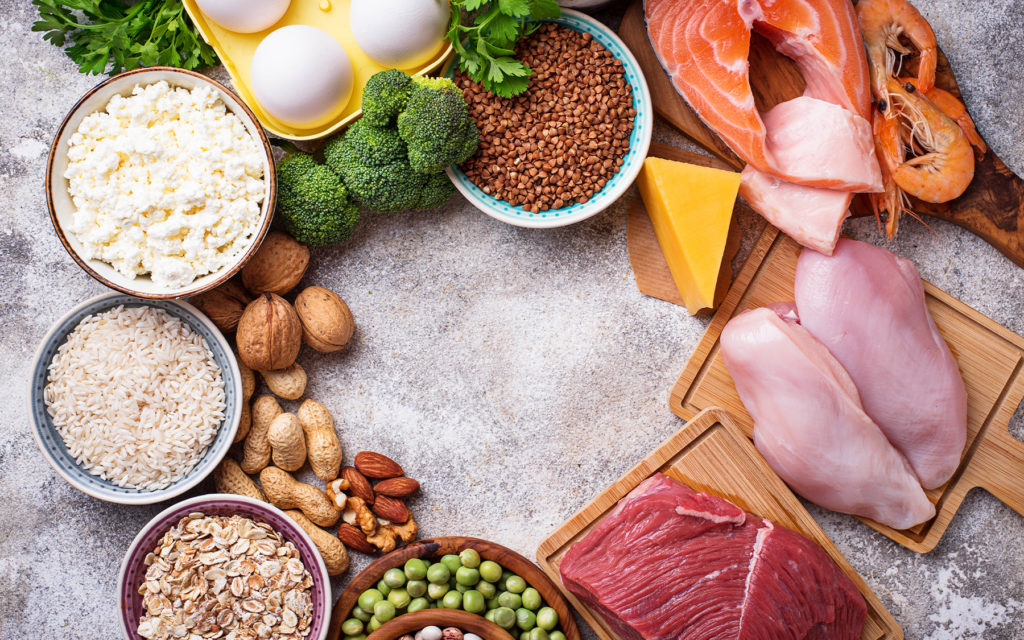
Protein is a necessary macronutrient that the body uses to build lean muscle, synthesize hormones, grow hair and nails, and maintain organs. Proteins are made up of building blocks, called amino acids. There are 20 amino acids that our bodies produce and/or acquire from food. Nine of the amino acids are considered essential because our bodies cannot synthesize them and therefore we must get them from food.
Where Does Protein Come From?
Proteins are either manufactured by our cells, or are found in our diets. Protein sources include animal products such as meat, poultry, fish, eggs, and dairy. Protein can also come from plant sources such as nuts, seeds, whole grains, beans, and legumes. These plant sources have enough essential amino acids to provide the necessary tools to maintain a healthy body.
How Much Protein Should People Consume?
Protein needs change throughout the lifecycle, but for the most part, we can determine our needs using a simple equation: Intake 0.8 grams of protein per kilogram of body weight. For a 150-pound person, that works out to approximately 55 grams of protein per day. Our protein needs can be met easily throughout the day by including a source of protein at each meal or snack.
Is There Such a Thing as Too Much Protein?
Excess protein in the diet can have side effects when paired with a low-carbohydrate intake. Toxic ketones can be formed in the presence of high-protein, low-carbohydrate diets, taxing the kidneys. This may lead to dehydration, fatigue, and bad breath. When fruits and vegetables are under-consumed and replaced with excess protein, it can put a strain on the heart, and lead to vitamin and mineral deficiencies. Moderate amounts of protein, along with a diet rich in nutrient-dense foods, such as fruits, vegetables, and whole grains, make for a well-rounded eating pattern that supports optimal health.
The Bottom Line:
Protein is essential to maintaining our body’s systems and functions. Some protein we can manufacture on our own, but some we need to get from food sources. Sources include both animal and plant foods, but if you follow a vegetarian or vegan diet, you are still able to eat adequate amounts of complete proteins solely from plant sources. Eating a diet that includes a variety of foods from all food groups will allow you to get the amount of protein necessary for your body to build muscle and maintain organs.
DISCLAIMER: These statements have not been evaluated by the FDA. The information is for informational purposes and is not intended to treat, diagnose or cure any illness. Consult a physician before taking any action.
Want to contribute great content?
We are looking for contributors provide our readers with great healthy content to encourage positive living. If you're interested in becoming a contributor pease email us at blog@movitajuicebar.com